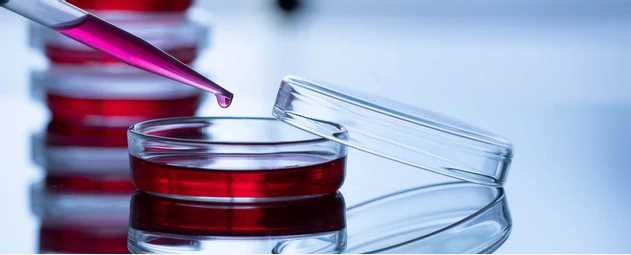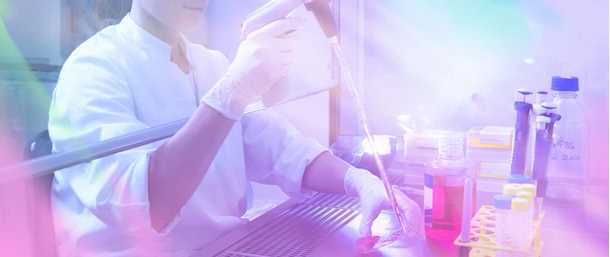Cell Line Characterization Services
Creative Bioarray provides a wide range of cell line characterization services for laboratory research and biopharmaceuticals. Cell line characterization will not only affect the progress of research but also affect the reliability of production. After continuous optimization, we have formed a time-efficient service process to provide customers with reliable and satisfactory cell line characterization services.
About Cell Line Characterization
In the past few decades, cell systems have been used as tools and models for basic research and industrial applications. The core of these cell systems is the cell line used. Therefore, it is necessary to characterize and identify cell lines before using cells for research or manufacturing. The method of evaluating cell line characteristics depends on the type of cell line (e.g., human, hamster, insect) and its intended use (e.g., mechanism research, gene therapy, production of biologically active peptides). Routine testing recommendations include cell line history and general characteristics, cell bank systems, and quality control testing. In some cases, verification studies are needed for virus removal and inactivation during the manufacturing process. In addition, when cell lines are used for the production of antibodies, recombinant DNA technology products, and gene therapy, stricter standard tests are performed. Our cell line characterization service can help researchers and biomedical companies perform multi-level cell line evaluation, including cell line stability, genetic stability, and microbial safety.

Realization of Production-related Cell Line Characterization
Regulatory agencies require cell line characterization to confirm the origin and history of the cell line. Of course, it also includes characterization and testing of cell line identity, stability, and purity. According to the ICH guideline Q5B, the use of cell lines to produce recombinant protein products requires "characterization of the expression construct and the final purified protein to ensure consistent production of recombinant DNA-derived products." The analysis should "ensure that the correct coding sequence of the product is integrated into the host cell and maintained during the culture process until the end of production."
Cell bank. The research cell bank (RCB), the master cell bank (MCB), the working cell bank (WCB), and the production cell bank (EoPCB) of the cell banks involved in the production of pharmaceutical companies;
Authentication. This is the test required to confirm the origin of the species.
Genetic stability. For the cells used in the production of bioactive peptides, especially the cell lines during the entire production process of biopharmaceuticals.
Purity. Make sure that the cell line is not contaminated with bacteria, fungi, mycoplasma, and viruses.
If you choose our cell line characterization service, you will benefit from our high-quality facilities and expert staff to ensure the safety and purity of your cell products.

Realization of Research-related Cell Line Characterization
Cell lines cultured in the laboratory are susceptible to contamination by microorganisms, mycoplasma, and other cells, so regular monitoring of characteristics is required to verify the identity of the cell line. The development of using cell lines requires a full understanding of the purity, source types, chromosomes, and genetic characteristics of the cell lines used. We provide cell line characterization services for laboratory research. Available items include testing combinations of important genetic markers, including chromosomes, DNA fingerprints, alternative splicing, and genes of interest to analyze genetic variation, explore transcriptome profiles, and ensure culture sterility.
Analyze genetic variation. Genome sequencing and northern blot.
Fluorescence in situ hybridization (FISH). It is used to count chromosomes and detect gene rearrangements and other events that cause large-scale changes in the physical arrangement of genes on chromosomes.
STR analysis. Cross-contamination between cultured cell lines is a common problem. Short tandem repeat (STR) DNA analysis can identify polymorphisms between STR markers. This is a relatively simple, low-cost and reliable method for detecting cell cross-contamination, which can reveal the true identity of the cell line.
RT-PCR. For the quantification of alternative splice variants and gene expression profile analysis. Custom qPCR primers are designed to quantify mRNA and detect exon skipping, intron retention, alternative splicing, etc. to identify and quantify different splicing variants.
Microbial Detection. Mycoplasma contamination in cell cultures is easy to detect and adversely affect cell physiology and metabolism. We provide testing services for mycoplasma in laboratories.

Creative Bioarray provides a variety of cell line characterization services to help our customers quickly evaluate cell conditions and adjust strategies. You will benefit from our complete cell line characterization service system and complete equipment platform. Our scientific team will work with you to find the best solution to meet your needs. If you are interested in our services or have any specific needs, please feel free to contact us. We look forward to working with you in the near future.
For research use only. Not for any other purpose.




